I am creating a code for a sparse matrix, basically for adding two sparse matrices. And now it's not working. showing some error with return NULL. When checking for the condition that if the dimensions of the matrix are not the same, it will not execute the program as the condition will be false and it will return NULL but it's showing an error there.
#include<iostream>
using namespace std;
class Element{
public:
int i;
int j;
int x;
};
class Sparse{
private:
int m;
int n;
int num;
Element *ele;
public: // constructor
Sparse(int n ,int m , int num){
this->n = n;
this->m = m;
this->num = num;
ele = new Element[this->num];
}
~Sparse(){ // destructor
delete []ele;
}
//Global functions for insertion and extraction
Sparse operator+(Sparse &s);
friend istream & operator>>(istream &is , Sparse &s); // Insertion operator
friend ostream & operator<<(ostream &os , Sparse &s); // Extraction operator
};
Sparse Sparse::operator+(Sparse &s)
{
int i , j , k;
if(m!=s.m || n!=s.n)
return NULL;
Sparse *sum = new Sparse(m,n,num+s.num);
i=j=k=0;
while(i<num && j<s.num){
if(ele[i].i < s.ele[j].i){
sum->ele[k++] = ele[i++];
}else if(ele[i].i > s.ele[j].i){
sum->ele[k++] = s.ele[j++];
}else{
if(ele[i].j < s.ele[j].j){
sum->ele[k++] = ele[i++];
}else if(ele[i].j > s.ele[j].j){
sum->ele[k++] = s.ele[j++];
}else{
sum->ele[k]=ele[i];
sum->ele[k++].x = ele[i++].x +s.ele[j++].x;
}
}
}
for(;i<num;i++)sum->ele[k++] = ele[i];
for(;j<s.num;j++)sum->ele[k++] = s.ele[j];
sum->num = k;
return *sum;
}
// void read()
istream & operator>>(istream &is , Sparse &s)
{
cout<<"Enter non zero elements:";
for(int i=0;i<s.num;i++){
cin>>s.ele[i].i>>s.ele[i].j>>s.ele[i].x;
}
return is;
}
// void Display()
ostream & operator<<(ostream &os , Sparse &s)
{
int k = 0;
for(int i= 0; i<s.m;i++){
for(int j=0 ; j<s.n; j++){
if(s.ele[k].i ==i && s.ele[k].j ==j){
cout<<s.ele[k++].x<<" ";
}else{
cout<< "0 ";
}
}
cout<<endl;
}
return os;
}
int main(){
Sparse s1{5,5,5};
Sparse s2{5,5,5};
// s1.read();
// s1.Display();
cin>>s1;
cin>>s2;
Sparse sum=s1+s2;
cout<<"Enter First Matrix:"<<endl<<s1;
cout<<"Enter Second Matrix"<<endl<<s2;
cout<<"Sum Matrix"<<endl<<sum;
return 0;
}
